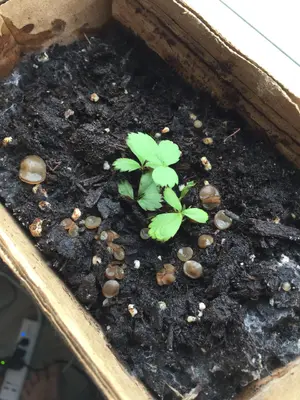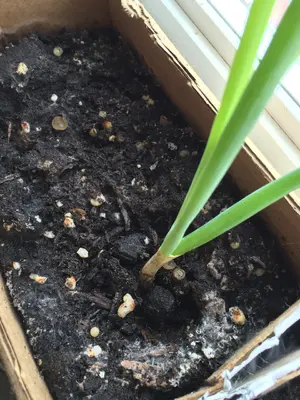Wow! So many folk ideas for growing things. The truth is that there are many paths to the same destination.
I believe in paradise gardening. Creating a symbiotic circle of native wildlife and the things you plant. Making a yard wild like a jungle, with good black soil, and a variety of native and intentionally grown plant life. I like to have a nice, waist high Garden of Eden with squashes, and berries, and greens, and onions just going nuts.
I don't even kill the Himalaya Blackberries or passionflower vines. If I see creepers coming down like they want to spread into the soil, I'll pluck the green tips off for use in medicine, and then weave the canes in and out of a fence where they provide shade for the more tender plants.
I have never had trouble with ants, if anything they have been my garden allies. I enjoy seeing their trails in the cracks, and watching them swarm over a rotted piece of fruit. If something gets spilled, or rots, the ants will come in, the merry maids they are, and within a couple days, it'll disappear as if it never existed in the first place.
On composting, Starbucks and other coffee stores are your best friends. If you ask the baristas, they'll often give you a trash bag full of grounds at the end of the day! You don't want to put fresh coffee grounds on your plants, but if you're dumping it in the composter, it'll add the "heat" that the composter needs to break down the organic stuff. Just put torn cardboard or paper on top of it to give a good mix. I find that dumping kombucha into the composter really speeds things up, as it adds another layer of microbes to the biome.
Ah, one of my favorite scents is compost. Like when it's finished and there's this sweet, hay like scent, oh yeah, you know it's going to rock that garden soil.
One year, when I had a large garden, I had a good friendship with a large huntsman spider. It was very odd and quite disturbing. He lived under the composter. I'd watch and an unsuspecting bug would walk by and he'd come out from his den, capture the bug, and disappear within seconds. He kept the garden healthy.
But then again, on bugs, most bugs are your friends in the garden. They're the ones who are breaking down the organic matter in the soil and making it into rich humus.
I've not been a fan of pulling weeds. Those are your native plants that the bad bugs want to eat, but when they're gone, they only have your garden to attack. On years where I pull the weeds, I lose a good amount of produce to pests. When I leave them in place and just tactically pull some up to make room for plants, most of my produce survives. The cabbage moths lay their eggs on the weeds, the slugs eat the weeds, and my veggies and flowers are left alone.
Some years, I even didn't pull up any weeds at all. I would just use the shovel to sort of make a crack in the soil and then I'd wedge the roots of whatever plant into that crack and gently lower the original soil over it.
There's one plant that everyone seems to pull up, it's called nipplewort. I hate saying that name. It gives such a yucky visual. I like to call it "Oregon Sunflower" lol. Anyway, it's the plant that all the slugs and all the moths actually want to eat. When you pull it up, they go after whatever else it is that is edible.
If there's a crop that really, really is delicious to pests, try planting garlic around it. Like within a few inches of the plant. OMG most everything in nature hates garlic.
And I've also found that in those years that I let the weeds have a little fun, I don't have to use Corry's Slug Pellets.
I've found that gardening in this way, working with and not against nature, has really worked for me.

